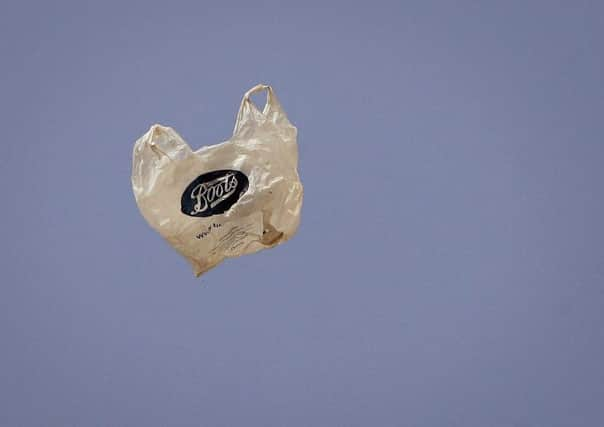Leader: Get carried away by bag tax success


Almost 130 million fewer bags have been bought by shoppers since the introduction of the mandatory charge in October last year. Scottish shoppers have been obliged to pay a minimum of 5p for each new, single-use carrier bag following legislation by the Scottish Parliament.
Often there is resistance to measures intended to change behaviours in small areas of our everyday life that are seen to be intrusive, over-fussy and pushing ever further forward the boundaries of the nanny state.
Advertisement
Hide AdAdvertisement
Hide AdBut in this case the introduction of the 5p charge has brought about an immediate – and wholly beneficial – change in behaviour. Little wonder that environment secretary Richard Lochhead has described the results as “astounding”. Bag purchase has plunged, from 193.5 million in the fourth quarter of 2013 to 64.6 million during the same period of 2014.
The charge itself is hardly onerous – and reluctant shoppers have the option of foregoing a plastic bag if they find the tax so objectionable.
But in the vast majority of cases it seems the charge has worked to effect a small shift in shopping habits – what behavioural psychologists call “nudge” – that brings about beneficial results without resort to bans, proscriptions or punitive levels of tax. It has focused our attention on how unthinkingly wasteful our constant resort to plastic bags had become and prompted consumers to take sturdier bags to the shops that they can keep on using for subsequent visits.
Such a small change is already bringing big benefits – particularly in a tidier, more pleasant Scotland. For too long the main streets in our urban areas were in a permanent state of untidiness. And in rural areas our magnificent scenery of glens and loch sides – such magnets for tourism – became blighted with unsightly plastic bags. The bags were also a bane at landfill sites where, resistant to decomposition, they could lie for decades.
Another benefit has been the boost to charities. Many retailers agreed to give any proceeds to good causes. Four major retailers have donated more than £1 million to good causes since signing up to ZeroWaste Scotland’s carrier bag commitment.
This is an inspiring example of how a small import can change our behaviour for the greater good – and yield an indisputable public benefit. Clear success of this initiative should encourage ministers to press on with other bold ideas to help make Scotland a zero-waste nation.